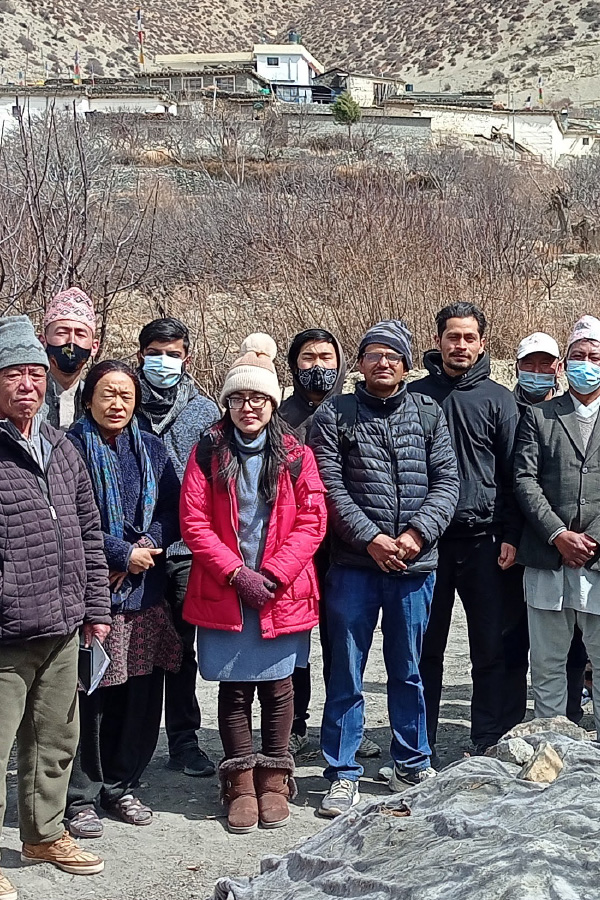
Apples are of great importance for Nepal, and any problem in production affects female farmers in particular: “Apples are the only major commodity on which Himalia people sustain their lives,” says Shristi Adhikari, who studies Agricultural Science at the Agriculture and Forestry University in Chitwan, Nepal. Despite the fact that women in Nepal mostly work in agriculture, they are often considered “helping hands,” according to Adhikari. “Most of the time they are unpaid, unappreciated and unrecognized.”
During a recent internship in Jomsom, Mustang – Nepal’s Himalayan region – she saw first-hand what effects climate change is having on apple farming and the people whose livelihood depends on it.
“We can see a huge fluctuation in temperature,” she explains. This matters because it results in less snowfall and more rainfall, which in turn brings more insect infestations. “And that deteriorates the quality of the apple.”
Shristi started to work with the local apple farmers, teaching them climate-smart integrated pest management, which uses natural processes to fight off insects and keep ecosystems intact. Bacteria are put to work instead of pesticides, for example, and farmers use fewer chemical fertilizers so those good natural processes can unfold to the fullest, without harming the environment. The hands-on training Shristi provided lasted 16 weeks and included theory and field demonstrations.
“The whole community depends on just their own agricultural productivity for their survival,” she says. “I learned how important it is for them to prevent the loss of those commodities.”
That’s why she’s eager to replicate her training in other regions of Nepal where impact from climate change is inevitable. Knowledge in gentle kinds of pest management could improve food security in those areas – and by extension, the position of women farmers.
To this end, over the course of her six-months’ stay in Jomsom, Shristi also encouraged more involvement of female farmers in decision-making and marketing, teaching them about climate smart integrated pest management practices. This is key to preventing further losses due to infestation, while at the same time it boosts their financial independence.
Shristi is part of FAO’s Local Heroes project, which aims to build the visual storytelling capacities of local actors fighting climate change, biodiversity loss, and malnutrition in their communities.